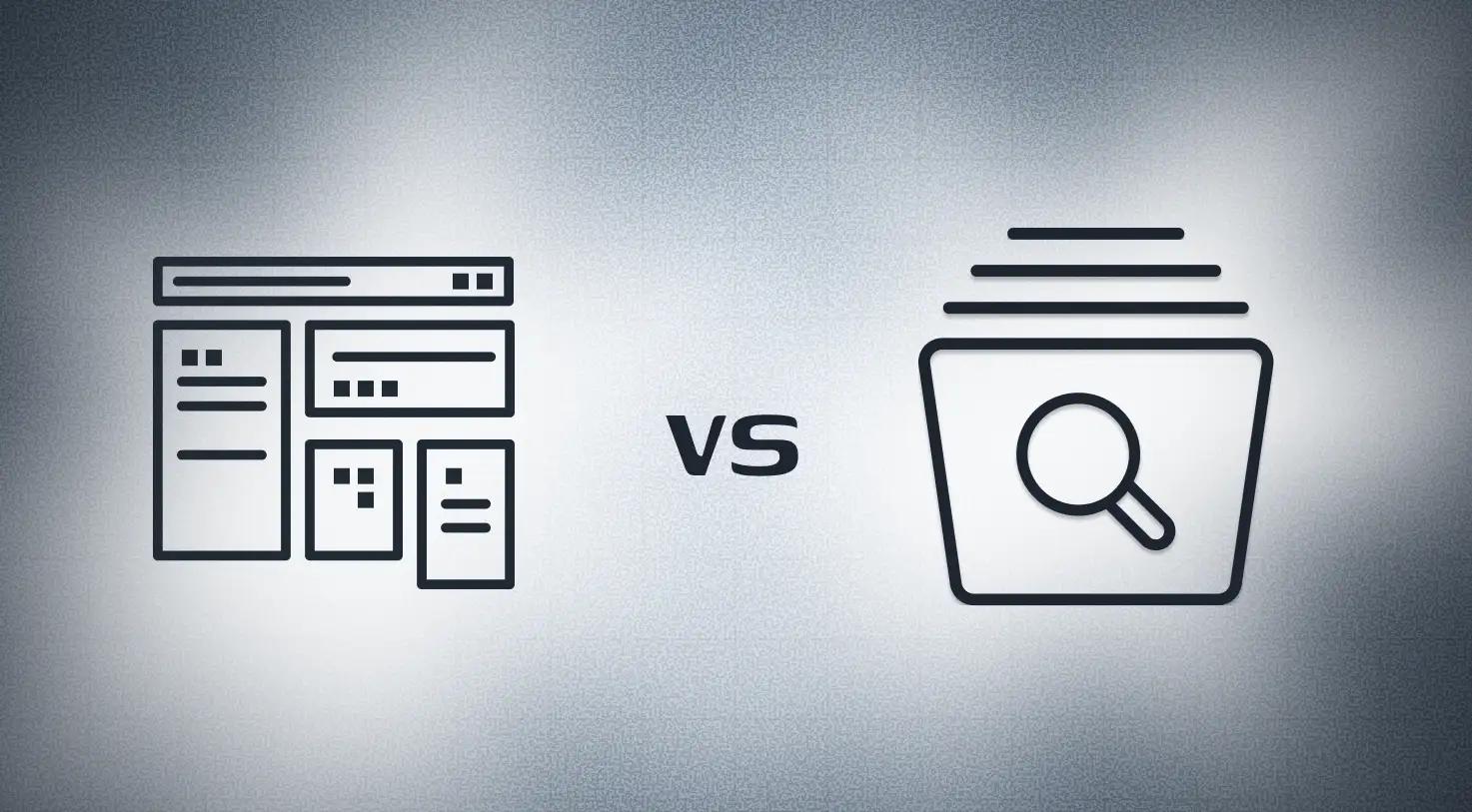Paid media vs organic media: Which is better for growing your business?

When you are looking to grow your business through digital marketing, there are two main strategies to consider:
- Paid media - search engine marketing, paid social media advertising, affiliate marketing, and other forms or performance marketing
- Organic media - search engine optimization, AI optimization, video production, and other content generation efforts
When evaluating these strategies, business owners often have many questions. Is one strategy better? What are the advantages and disadvantages of each? How do you determine which one is right for you?
We’ll break down what you need to know.
Advantages of paid media
Aggressive growth
Paid media can be phenomenal for generating high volumes of traffic and leads in a short period of time. Well-targeted and well-funded performance marketing campaigns yield larger results much faster than organic efforts, making them an attractive tactic for businesses that are trying to grow quickly.
Powerful targeting
With paid media campaigns, you typically have access to powerful targeting capabilities that allow you to show your ads to highly specific audiences. This approach is helpful for businesses that are trying to reach a highly-specific niche that might otherwise be difficult to address organically.
Remarketing
One clear advantage of paid media is that it allows you to retarget people who have visited your website without converting. Paid media gives you an opportunity to show targeted ads to those who might have otherwise been lost from your pipeline.
Disadvantages of paid media
Pay-to-win
Frustratingly, performance marketing strategies are usually only as effective as they are financed. If you are trying to successfully advertise in a competitive market, expect to pay significantly for optimal results. However, if you can achieve significant Return on Ad Spend (ROAS) even with high advertising costs, a paid approach is worth the investment.
Changing landscape
The success of a paid media campaign all hinges on the platform it uses. For example, if you run a Google Search campaign, you have to trust that Google will uphold its end of the bargain. You hope it will show the ad to your desired audience without changing its algorithm or stealing your money through sneaky settings. Keep an eye on the constantly-changing landscape of digital advertising and change your strategy as necessary.
Advantages of organic media
Lower cost
Many companies are attracted to organic media because they believe that it’s “free”. While nothing can ever truly be free, organic media is typically more cost effective than a paid strategy that has large ad spend costs.
Sustainable
While a paid strategy is typically only as strong as the money behind it, a well-informed organic campaign can build exponential equity. Once your brand has strong authority on a search engine, social media platform, or AI answer engine, it becomes easier to see larger returns from smaller amounts of work.
Zero click safe
The era of zero click results is drastically reducing website traffic. Therefore, a well-executed organic media strategy is becoming more likely to generate brand visibility than a paid media campaign. This is because AI summaries often answer search queries by summarising native website content, eliminating the need to click on an ad.
Disadvantages of organic media
A lot of work
One of the biggest disadvantages to an organic media campaign is that it often requires more effort than a company wants to expend. When done well, an organic strategy can be fantastic for brand visibility, but reaching that point requires a dedicated investment of time from either an in-house team or an external agency.
Slow to yield results
While getting started with organic media usually requires much less upfront investment than a paid strategy, it often takes significantly longer to yield the desired results. The best time to start an organic media campaign is always today, but if you are looking for immediate results, this approach likely won’t deliver them.
Hard to guarantee results
Whether you are investing in SEO, social media, or AI optimization, your organic strategies are ultimately reliant on algorithms and the taste of your audience. These two aspects are subject to constant change. While results from paid advertising campaigns can’t guarantee either, it is even harder to predict which organic content will actually have the effect you are hoping for.
So which is right for you?
For most businesses, choosing between paid and organic media isn’t one or the other; it’s both/and. The best strategies typically mix parts of both approaches.
If you are just starting out, however, you may not be ready for a complex, integrated strategy. Here’s a quick way to self-assess which one is best for you at the outset:
Start with a paid approach if:
-
You are in need of immediate results
-
You have at least $3000 available to for ad spend each month
-
You are looking to grow your brand awareness quickly
-
You want to remarket to prospects further down your pipeline
Start with an organic approach if:
-
You are more interested in long-term success over immediate returns
-
You are trying to develop authority and trust for your brand
-
You have significant industry knowledge that can be shared as content
-
You have a team member you can task with creating quality content or you have the ability to hire an agency to produce it for you
Hopefully this gives you a lot to consider as you prepare to get aggressive with your marketing.
If you have more questions of this nature, check out the “Performance Marketing and SEO questions” section of our FAQ page.